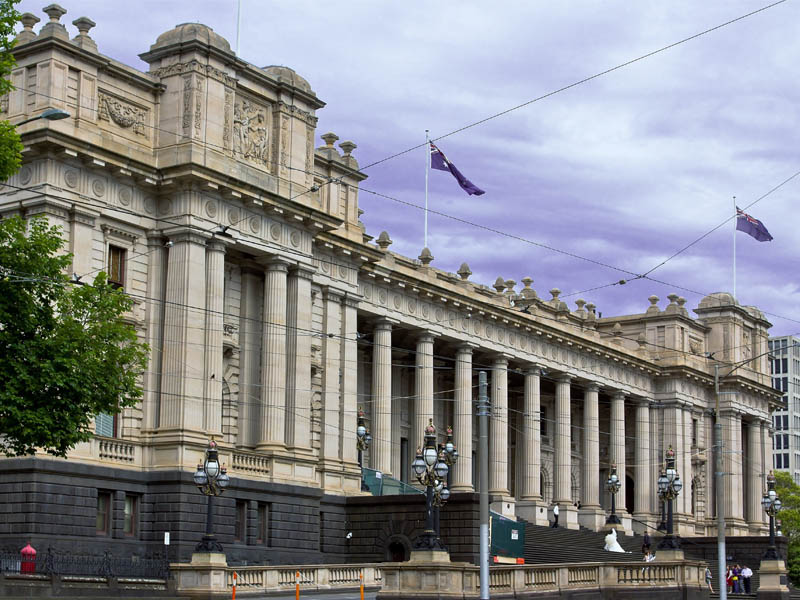The decision by Victorian funding agency LaunchVic to sever its ties to the troubled Silicon Valley accelerator 500 Startups is the right one. It brings to a close a needlessly tumultuous month in which LaunchVic has sustained heavy reputational damage.
Philip Dalidakis will be feeling bruised by this debacle, too. Having been a strong supporter of 500 Startups’ entry into Melbourne, he also applauded the LaunchVic’s response to the sexual harassment scandal at every confusing step along the way.
The damage here is real. The political fall-out for Mr Dalidakis is real. There are no doubt more than a few raised eyebrows among the Andrews Government leadership team, just as there are foot-tapping headshakes coming from the private sector.

As the minister for giving away tens of millions of dollars, Mr Dalidakis is publicly loved by the ecosystem. But privately there is growing frustration at the Black Box nexus between the minister’s office and the funding decision processes.
This is a genuine problem. The scale of this problem can measured against the wonderful opportunity that the minister now has to address systemic transparency issues and due diligence gaps. It’s huge.
500 Startups is the canary in the coal mine and it has fallen off the perch. These process, transparency and due diligence issues has shaken confidence in the system.
The next big decision likely to come out of the Department of Economic Development/Dalidakis nexus relates to government plans to support the establishment of a FinTech Hub in Melbourne.
After pursuing its FinTech hub ambitions at a glacial pace for two years, the strategy is now on the fast-track. A Request for Proposals was issued in mid-June, applications closed a couple of weeks ago and now a shortlist is understood to have been drawn-up.
Melbourne’s York Butter Factory, Sydney’s Stone & Chalk and an un-named international player are thought to have been selected. But already the process is attracting criticism conflicts of interest and accusations about government’s inappropriate sharing of intellectual property.
These transparency issues undermine confidence in decisions and diminish the authority of government.
In relation to government support, whether it is an “independent” grants program like LaunchVic or a more traditionally structured support program like Invest Victoria, opaque processes lead to the inefficient allocation of scare resources (at best) and heightens the risk of cronyism.
LaunchVic must be relieved that the contortions over 500 Startups have come to an end. But of course that’s not how these things tend to go. This story still has a way to go.
Right to the end, LaunchVic’s response to the scandal was weird. And opaque. The 500 Startups program was axed because the local chief Rachael Neumann had resigned from the organisation and therefore 500 Startups no longer had the trust of LaunchVic.
Like there is no-one else in Australia capable of running the show. Really. In the end, it seems like LaunchVic outsourced the decision about 500 Startups to its former board member, Ms Neumann.
The reality is that from the very first days of the 500 scandal – as soon as it became known that 500 Startups had deceived the government and embarrassed the minister – the relationship was dead. LaunchVic should have called it at the time, rather than trying to apply lipstick to a pig of a situation.
There is no doubt that extricating LaunchVic from its $2.9 million funding commitment was not a simple or straight-forward process. LaunchVic and 500 Melbourne have alluded to these mysterious and un-said complexities.
But in the end, the decision was apparently straight-forward. And should have been made a month ago, before the damage was done.
Philip Dalidakis has created real momentum in his state in relation to Victoria’s startup ecosystem.
But he is being undermined by the belief or the position that an “independent” organisation responsible for giving away tens of millions of dollars can simply pull down the shutters if it is asked even the most mundane or straight-forward factual question about process.
Can you imagine making a simple inquiry of a government owned business entity as to who is on its board – ultimately responsible for the disbursement of $60 million in taxpayers’ money – and being told it was available via ASIC (for a cost of $38)?
Or announcing the continued funding of a scandal-plagued organisation via a statement published in stealth mode to its website on a Saturday morning?
If you can’t make a critical assessment of a public program without being accused of throwing a wet blanket over all the blue-sky and greenfields, something is very wrong.
As an aside, I am frankly tired of being accused of not being supportive enough “the ecosystem.” Sometimes this is what support looks like. We will continue to provide a positive voice and critical eye on public policy issues related to the tech and innovation sectors in this country.
There is a cloud over these programs in Victoria. But there is also a silver lining.
At a time when decisions need to be made about an important FinTech hub for Melbourne, and the on-going disbursement of more than $45 million in the next couple of years from LaunchVic, we hope the minister lets in some fresh air.
Do you know more? Contact James Riley via Email.

